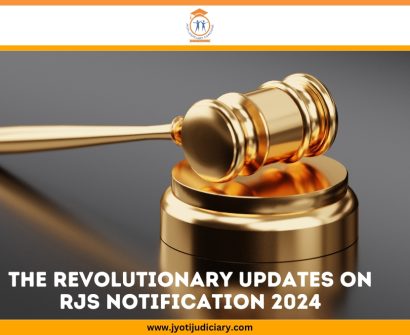
The internet has grown into an essential aspect of everyday existence in the age of technology as it offers ease, connectivity, and endless possibilities. However, the extensive nature of the World Wide Web additionally carries with it the possible threat of financial frauds, such as phishing scams, which are phishing attacks intended to deceive individuals into revealing confidential data like credit card numbers, passwords, or individual identities.
These types of scams are exceedingly common but are also constantly evolving, which places individuals, organizations, and businesses in significant danger all over the world.
phishing meaning
- As per the phishing definition, it is one kind of financial fraud.
- It it is the dishonest conduct of sending emails or other messages that appear to be from reliable sources in an attempt to trick recipients into disclosing credit card data and passwords.
phishing attack
- As per phishing attack meaning, they are deceptive emails, texts, phone calls, or websites that aim to fool people into downloading malicious software, disclosing private information (such as login credentials, bank account numbers, and Social Security and credit card numbers), or taking other actions that put them or their companies at risk of being hacked.
- Phishing attacks that are successful frequently result in ransomware assaults, credit card fraud, identity theft, data breaches, and significant financial losses for both individuals and businesses.
Phishing Scams: Types
Phishing Scams via Email
- Using this method, hackers send emails that look to be from reliable sources.
- These phishing email have malicious links in them that either beg the recipient to download files that are infected with viruses or reroute them to another website.
- These malware take sensitive user data, such as credit card numbers, OPTS, private financial information, or company financial information. This malware can do a lot of damage and stay hidden in the user’s system for several months.
SMS Phishing Scams
- These assaults are sent by text messaging. A message inviting the user or recipient to click on links or reply with personal information is sent to them on their personal phones.
- Due to the public’s widespread use of smising, many have lost enormous amounts of money in the past.
- It’s a dangerous tool for illiterate people who reveal their bank details in messages and are overly trusting.
Voice Phishing Scams
- Via phone calls, attackers pretend to be bank personnel or representatives of reputable companies.
- False information about their accounts being stopped, their ATM cards expiring, their insurance policies maturing, etc. is used to mislead consumers.
- The victim shares sensitive information because the assailants have made them feel so terrified that they cannot stop themselves.
spear phishing attack
- Cybercriminals craft their messages for certain people or organizations rather than the general public when they launch spear phishing attacks.
- This degree of customization increases the attack’s convincingness and difficulty in being discovered.
- Social media platforms frequently serve as informational resources for victims.
phishing in cyber security: How to Protect Yourself?
- Be Sceptical: You should always be wary of unsolicited communications, emails, and demands for private information. One effective technique to distinguish between real and fraudulent websites, as well as phishing emails and texts, is to confirm the sender’s identity and look for any indications of grammatical problems or inconsistencies.
- Verify URLs: You ought to hover your mouse over any link to see its full URL before clicking on it. Make sure the address matches the actual website to avoid revealing private information.
- Make use of Two-factor Authentication: Whenever feasible, turn on two-factor authentication. Adding an additional verification method to your password requirements boosts security.
- Update your Software: Update your operating system, browsers, and security software frequently to fix security flaws that hackers could exploit. Updates for your software include defenses and other safeguards that keep your systems safe from harmful threats in phishing in cyber security.
- Become Knowledgeable: You should be up to date on the newest phishing schemes and frauds. Concentrate on keeping yourself informed about typical phishing tactics and red flags. Social media and online resources can teach you about the most recent con games and strategies. Attackers will find it more difficult to con you the more observant you are.
- Have Strong Passwords: Use difficult passwords for your online accounts and refrain from using the same password on several different platforms by employing strong passwords. Attackers will find it more difficult to hack or obtain unauthorized access as a result. It’s also an excellent concept to change your passwords frequently.
Because inexperienced internet users are unaware of it, cyber phishing is a major problem in the global e-commerce ecosystem. In addition to technology advantages, phishers often use human shortcomings, or technical vulnerabilities. People’s susceptibility to phishing is influenced by age, gender, internet addiction, stress, and many other characteristics, it has been shown. Law enforcement organizations, lawmakers, and the commercial sector should collaborate and coordinate their efforts to combat the threat posed by phishing by accepting phishing reports from the victims.
Phishing Scams FAQs
- Is it safe to reply to a phishing email?
Since many people consider phishing emails to be more of an irritation than a real threat, it is simple to underestimate the danger. However, a single response, motivated by inquisitiveness or frustration, perhaps, can trigger a cyber-Pandora’s box.
- What are the tips for phishing awareness?
- Learn for yourself.
- Remain watchful and sceptical.
- Make use of two-factor authentication and secure passwords.
- Make sure your security and software programs are up to date.
- Never download attachments or click on dubious links.
- Take caution when handling personal data.
- What are the dangers of phishing?
If a cybercriminal is successful in obtaining a person’s personal information through phishing, they can use that information to impersonate the victim. This may result in a variety of issues, including harm to their reputation and credit score.
- What is the most common method of phishing?
The most prevalent kind of phishing, known as email phishing, has been around since the 1990s. Hackers send these emails to every email address they’re able to discover. Usually, the email alerts you to the fact that your account has been compromised and requests that you click on a link to respond right away.
- Is phishing a serious crime?
Yes, in the majority of nations, phishing attacks are forbidden. Phishing assaults can cause large financial losses for both individuals and companies. They are classified as a type of fraud or identity theft.
- How is phishing illegal?
Identity theft is a more general area of crime that includes phishing. Although phishing scams are quite popular, identity theft refers to any attempt to utilize another person’s personal information fraudulently or illegally.
- What are the signs of phishing?
- Action must be taken immediately.
- Poor grammar and spelling problems.
- an unusual salutation or greeting.
- requests for sensitive data, payment details, or login credentials.
- Offers seem too good to be true.
- unwanted or suspicious attachments.
- disparities in domain names, email addresses, and connections.
- Why is phishing a cybercrime?
Phishing is a type of cyberattack where victims are tricked into divulging personal information and company data by means of phony emails, websites, and text messages. Phishing has many different purposes, such as identity theft, gaining unauthorized access to computer systems, or making money directly through phony bills.
- Which coaching is best for judiciary?
Jyoti judiciary Coaching offers the best judiciary coaching available in Jaipur. Its objective is to furnish the students with a comfortable learning atmosphere. It raises the probability of reaching the intended result by making the challenging task seem simple. Our mission at Jyoti Judiciary is to provide you with the best education we can. The Institute guarantees that it will make every effort to give you the best possible preparation for the Judicial Service entrance exams.
- Which coaching is best for RJS preparation?
The reputable Jaipur coaching program “Jyoti Judiciary Coaching” aids students in getting ready for the RJS exam. The best both online and offline RJS coaching program in Jaipur, Jyoti Judiciary, enables a methodical approach to RJS examination preparation. With great care, their curriculum has been created to include every topic and course required to pass the Rajasthan Judicial Service Exams.
With the goal of giving students the best coaching available for law entrance exams including the CLAT, AILET, and various other numerous state judiciary exams, Jyoti Judiciary Coaching, India’s Finest educational Platform, was established. Come enrol now with Jyoti Judiciary!
For any latest news, legal topics, judiciary exams notifications, patterns, etc watch Jyoti Judiciary’s YouTube channel for legal videos for any updates at https://youtube.com/@jyotijudiciarycoaching4852?si=2cwubh9d2A9urwJf










